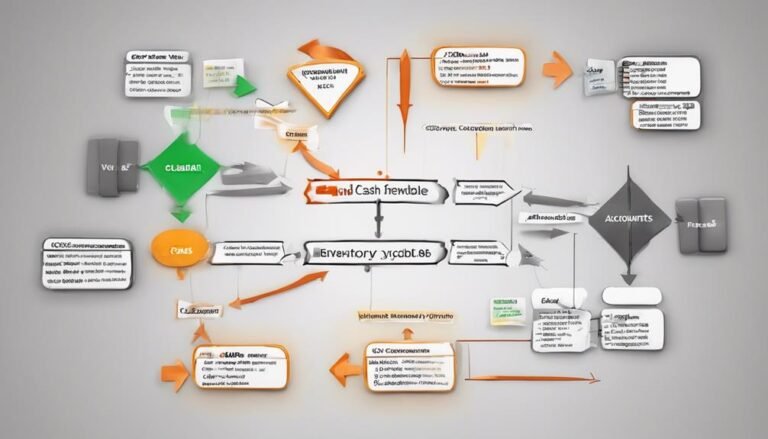Barter (or Bartering) Definition, Uses, and Example
Barter, a system dating back centuries, involves trading goods or services without money. It thrives on evaluating value through negotiations rather than a set currency. This method proves essential in areas with limited monetary resources. Bartering is a strategic tool, fostering relationships and aiding resource distribution in economic downturns. It plays a key role in international trade and partnership building, transcending boundaries for mutual gains. Understanding tax implications is important, ensuring compliance with IRS regulations. To excel in bartering, connect with local traders, research market values, and engage in community networks for successful exchanges. Explore this fascinating world further for deeper insights.
Key Takeaways
- Barter is exchanging goods or services without money.
- Facilitates trade when traditional currency is scarce.
- Builds relationships and fosters personal connections.
- Enhances business networks for future trade opportunities.
- IRS considers bartering as taxable income; accurate fair market value estimation is crucial.
Historical Roots and Definition
Barter, an age-old practice dating back centuries, is the fundamental act of exchanging goods or services without the involvement of money. This ancient origins of trade without money were essential for societies before the advent of currency systems.
Bartering played an important role in facilitating transactions and acquiring necessary items. It was a system based on the mutual agreement of the value of goods or services exchanged. The absence of a standard currency meant negotiations were essential to determine fair trades.
Barter helped individuals meet their needs by leveraging their possessions or skills. This method of trade fostered relationships and allowed for the circulation of goods where traditional currency was scarce or non-existent.
Benefits and Principles
Amidst various economic exchange methods, understanding the benefits and principles of bartering sheds light on its unique value proposition in modern commerce.
Bartering isn't just about swapping goods; it's a strategic negotiation process where parties assess the relative values of their offerings. Through bartering, you can trade unused items for essentials while fostering personal connections with your trading partners, building lasting relationships that extend beyond the exchange itself.
This practice not only aids in resource allocation during economic downturns but also contributes to economic equilibrium. By incorporating negotiation strategies and emphasizing relationship building, bartering becomes more than just a transaction—it becomes a means to cultivate mutually beneficial interactions and optimize the value of goods and services exchanged.
Bartering Across Different Sectors
As we explore the domain of economic exchange methods, an examination of bartering across different sectors reveals its versatile application in varied industries and settings.
Bartering plays a significant role in international trade, where countries exchange goods and services to manage trade deficits and debts. This practice aids in balancing economic relationships between nations and optimizing available resources.
Additionally, bartering fosters interpersonal connections by creating opportunities for individuals and companies to build relationships through mutually beneficial exchanges. These connections can lead to long-term partnerships and collaborations, enhancing business networks and facilitating future trade opportunities.
As a result, the practice of bartering transcends borders and industries, showcasing its adaptability and effectiveness in diverse sectors.
Economic Downturns and Tax Considerations
During periods of economic downturns, it becomes vital for individuals and businesses to navigate the tax implications associated with bartering transactions. Business strategies need to take into account the tax implications of bartering, as the IRS considers bartering as taxable income.
It's essential for businesses engaging in barter to estimate the fair market value of exchanged goods accurately. Different rules apply depending on the form of bartering, necessitating consultation with tax professionals to guarantee compliance.
Understanding the tax considerations allows businesses to develop effective strategies for managing their tax liabilities while engaging in barter. By proactively addressing tax implications, businesses can optimize their bartering transactions and mitigate potential financial risks associated with inaccurate tax reporting.
How-To Guide and Trading Exchanges
To navigate the world of bartering effectively, understanding the intricacies of how-to guides and utilizing trading exchanges can greatly enhance your trading experiences. When engaging in barter transactions, employing negotiation strategies and tapping into community networks can help you secure favorable deals. In addition, exploring virtual platforms within the barter economy can expand your trading opportunities and connect you with a broader pool of potential partners. Consider leveraging membership-based trading exchanges such as ITEX and International Monetary Systems, which facilitate seamless swaps using barter dollars. These platforms not only streamline the trading process but also manage tax components, ensuring compliance and transparency in your barter transactions.
| Negotiation Strategies | Community Networks |
|---|---|
| Research market values | Connect with local traders |
| Prioritize needs | Join online barter groups |
| Establish clear terms | Attend barter fairs |
| Be flexible | Collaborate with like-minded individuals |
| Maintain open communication | Engage in reciprocal trading |
Conclusion
To sum up, bartering offers a unique and valuable way to exchange goods and services without the need for money. With its historical roots, benefits, and principles, bartering remains a relevant and effective tool in various sectors.
As you navigate the world of barter, consider the possibilities and opportunities it presents. How might embracing bartering enhance your ability to meet your needs and assets in a resourceful and innovative manner?







